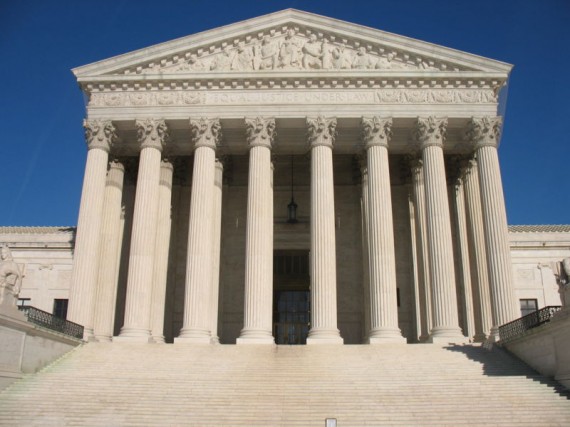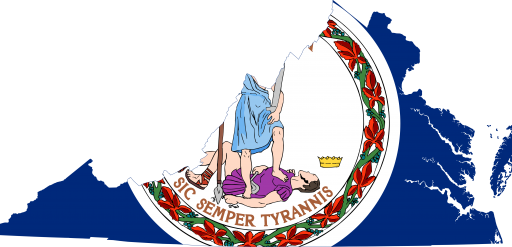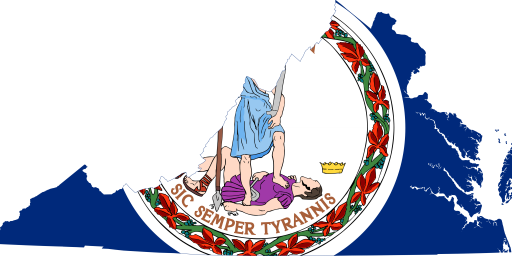Supreme Court Rejects Virginia’s Petition For Expedited Review Of ObamaCare Lawsuit
The challenges to the Affordable Care Act will remain in the Courts of Appeals for now, but they're still on a pretty fast track.
Not surprisingly, the Supreme Court has rejected Virginia’s request for an expedited appeal of its lawsuit challenging the Constitutionality of the Affordable Care Act:
The Supreme Court rejected a call Monday from Virginia’s attorney general to depart from its usual practice and put review of the health care law on a fast track. Instead, judicial review of President Barack Obama’s signature legislation will continue in federal appeals courts.
The justices turned down a request by Virginia Attorney General Ken Cuccinelli, a leading opponent of the law, to resolve questions about its constitutionality quickly. The Obama administration opposed Cuccinelli’s plea.
Only rarely, in wartime or a constitutional crisis, does the court step into a legal fight before the issues are aired in appellate courts. Hearings already are scheduled in May and June in three appeals courts.
The case still could reach the high court in time for a decision by early summer 2012.
Justice Elena Kagan apparently took part in the court’s order Monday, as there was no announcement that any justice sat out. There had been questions about whether she would participate because she served as Obama’s solicitor general when the law was passed. Kagan indicated in Senate testimony last year that she played no role in the administration’s planning and handling of challenges to the law.
So far, five federal judges have ruled on challenges to the law. Two Republican appointees, in Florida and Virginia, have declared it unconstitutional in whole or in part. Three Democratic appointees, in Michigan, Virginia and Washington, D.C., have upheld it.
Cuccinelli filed suit on behalf of Virginia, while 26 states joined in a separate lawsuit in Florida claiming that Congress exceeded its authority in requiring citizens to buy health insurance or pay a penalty starting in 2014.
In asking the high court to pluck the health care cases from the appeals courts before decisions were rendered there, Cuccinelli said delay imposes a “crippling uncertainty” upon the states.
The court gave no reason for it’s decision in this matter, which is typical in these types of cases but one would imagine that they found the Federal Government’s argument that there was no extraordinary reason to bypass the normal appeals process to be persuasive. Additionally, as I previously noted, the ACA cases on appeal are all set to be argued within the next six weeks at the Court of Appeals level:
May 10: Virginia v. Sebelius and Liberty University v. Geithner at the Fourth Circuit (Richmond).
June 1: Thomas More Law Center v. Obama at the Sixth Circuit (Cincinnati).
June 8: Florida v. HHS at the Eleventh Circuit (Atlanta).
One or more of these cases is likely to be decided by the end of the summer. At that point, the losing side will be able to file for direct appeal to the Supreme Court, setting the case on a track for SCOTUS argument in the 2011-12 Term, and a decision from the Supreme Court by June 2012 at the latest.
There are things that could happen to derail this timetable, of course. The Courts of Appeals could take time issuing their decisions, meaning that the time to appeal to the Supreme Court would be pushed back and the case may not get argued until the October 2012 term. Given that all three courts have placed these cases on an expedited calender, though, that seems unlikely. The losing parties at the Courts of Appeals could decide to apply for en banc review by the Court of Appeals before going to the Supreme Court, although that seems unlikely with a case such as this. Finally, of course, the Supreme Court could decline to accept any of these cases but, given that we’re talking about a major piece of federal legislation, that seems very unlikely.
More likely than not, then, the Supreme Court seems on track to issue a decision on whether or not President Obama’s signature legislative achievement is Constitutional right before the start of the 2012 election campaign. That should make things very interesting.






I’ll bet money that SCOTUS never hears any of these cases unless the Appeals court(s) make weird decisions. The libs on the court don’t want to put ACA in hazard and the conservatives on the court don’t want to gut the commerce clause for future conservative laws.
If Thomas doesn’t recuse himself why should Kagan? He clearly has a larger conflict of interest.
I addressed the recusal issue in February, the arguments about Thomas needing to recuse himself are nonsense, the argument regarding Kagan depend on how much she was involved in giving the White House legal advice about the legislation as it made it’s way through Congress:
https://www.outsidethebeltway.com/house-democrats-call-on-justice-thomas-to-recuse-himself-from-heathcare-litigation/
Doug,
The Code Section you quoted in that post reads…
“…Canon 3(C)(1), which covers circumstances is mandatory:
A judge shall disqualify himself or herself in a proceeding in which the judge’s impartiality might reasonably be questioned, including but not limited to instances in which:
(a) the judge has a personal bias or prejudice concerning a party, or personal knowledge of disputed evidentiary facts concerning the proceeding;…”
Thomas’ wife is the head of Liberty Central which is dedicated to opposing what she herself characterizes as the leftist “tyranny” of President Obama.
Thomas says he shares his wifes principles: “…We are equally yoked, and we love being with each other because we love the same things. We believe in the same things, so, with my wife, and with the people around me, what I see, I’m reinforced that we are focused on defending liberty. So, I admire her and I love her for that because it keeps me going.”
Even if there is no proof of economic benefit – which he has clearly been working to obscure in financial statemenst for years – there is absolutely clear personal bias. Obama is a leftist tryrant and the Thomases are defending liberty.
I agree with you about Kagan. But I agree because I think if there is any question at all it is the judges duty to recuse themselves. Err on the side of caution.
“Kagan indicated in Senate testimony last year that she played no role in the administration’s planning and handling of challenges to the law.”
Suppose she had played a role, etc. In the question before the Court, so what? It is not a question of the merits of the case on either side — it’s a question of judicial procedure. Her participation in the ACA while she was in the administration, or lack of, should have no bearing on a purely procedural question, should it?
Sam,
If she played a role then legal and judicial ethics would require her to recuse herself
sam, basically she would have been the lawyer for one of the parties before the Court on the very issue she was representing that party about.
Here is a description of what Kagan did not do:
So, imagine if Neal Katyal had been appointed to the Supreme Court, and it was about to hear a case stemming from the BP oil spill and it could be said that he was the point person for BP in discussing the environmental issues and how to defend them in court?
According to PDShaws link she has gone to lengths to actually prevent a conflict of interest. According to Thomas’ financial statements he has gone to lengths to obscure a conflict of interest. Quite different animals those.
@Doug (and PD)
Well, I’m not so sure. If the question was, should any case, not necessarily this case, jump the queue and head to SCOTUS, I don’t see why she need recuse herself. As I said, it was not a question of the merits of the case but rather of judicial system procedures. Another way of putting this is, she could have participated in the denial of the queue jumping (not reaching the merits) and, if she did participate when in the administration, etc, she could recused herself when and if the case did reach SCOTUS (deciding on the merits) without any conflict.
Seems to me that two distinct issues are involved — but the question is now, ahem, moot.
sam, I may not have understood the distinction you were drawing here, but I don’t see the decision whether or not to grant cert (either before or after jugment) as a mere procedural action. It’s entirely a discretionary decision and as potentially important to the litigants as the merits.
I don’t agree with Chad S since I think the SCOTUS is likely to take the case down the road, but his theory stands, whether or not they decide to take the case can be strategic.